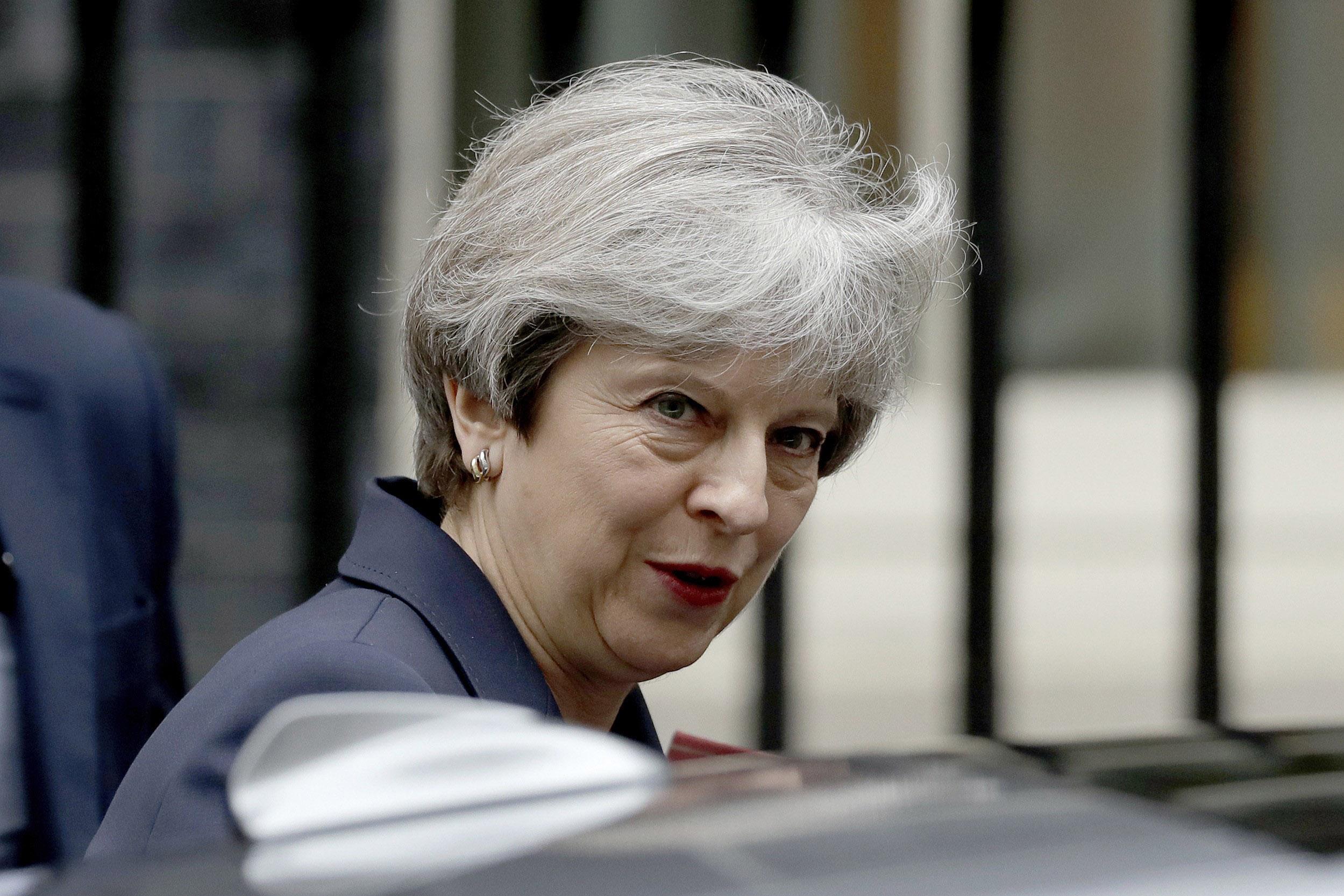The Tories are making a habit of U-turns – Brexit will be next
The only question is whether Theresa May will still be around and have the authority to revert to her position during the referendum of Remain

Your support helps us to tell the story
From reproductive rights to climate change to Big Tech, The Independent is on the ground when the story is developing. Whether it's investigating the financials of Elon Musk's pro-Trump PAC or producing our latest documentary, 'The A Word', which shines a light on the American women fighting for reproductive rights, we know how important it is to parse out the facts from the messaging.
At such a critical moment in US history, we need reporters on the ground. Your donation allows us to keep sending journalists to speak to both sides of the story.
The Independent is trusted by Americans across the entire political spectrum. And unlike many other quality news outlets, we choose not to lock Americans out of our reporting and analysis with paywalls. We believe quality journalism should be available to everyone, paid for by those who can afford it.
Your support makes all the difference.It seems almost a long-lost age of political serenity, but it is only a little over two months since Theresa May called her ill-starred, unnecessary and premature general election. She was right about one thing, however, clichéd as it soon became: Britain does need a strong and stable government – just one not led by Ms May.
So far from making her minority government more secure, the Government’s pact with the Democratic Unionist Party has merely provoked another U-turn. Having previously refused to accommodate the needs of Northern Irish women who are forced to travel to the rest of the UK for an abortion, and to pay for the operation, the Chancellor has announced that he will now fund these procedures on the NHS.
Philip Hammond made the move after a Commons motion, with cross-party support to that effect, was tabled and the whips rightly detected that it would win sufficient backing from Conservative rebels to overwhelm the Government side, even with the support of the DUP’s 10 MPs. Moreover, it seems unlikely that the amendment would have been tabled if the DUP’s policies and conservative social attitudes had to come under such unaccustomed scrutiny in recent weeks. Liberal Tories, especially women, decided to make their displeasure known in the most direct and valuable way. There may well be more revolts from that wing of the party.
The other U-turn, on public sector pay, is rather less welcome. It too is the result of some nifty parliamentary footwork, this time on the part of the Labour Party. Downing Street, having indicated that it was prepared to relax the extreme austerity on public sector pay unleashed by George Osborne seven years ago, then decided that to be seen to be caving in to the Opposition was just too humiliating to bear. What journalists like to term a “reverse ferret” was organised and No briefed that the 1 per cent pay limit was to be slapped back on Britain’s hard-working nurses, police, firefighters and the rest. So Jeremy Corbyn was going to win either way; and now he has the immense satisfaction of being able to pose as the champion of the most heroic people in Britain, rightly lauded for their dedication in the face of terrorism and the Grenfell Tower fire.
Even when Ms May enjoyed a modest Commons majority – that is the working one of 17 bequeathed to her by David Cameron – her Government was prone to zigzagging on policy, as we saw with the national insurance hike that never was, for which she unfairly blamed her Chancellor. Since the election most of her flagship policies in the Conservative manifesto have been ditched, including grammar schools, a free vote to bring back fox hunting and the “dementia tax”. Most, that is, but not all, because Brexit remains the Government’s priority, crowding out almost everything else. Yet the more the public hears about the consequences of Brexit, the less it seems to like the idea. Slowly but surely, the truth about what will happen to trade, jobs, investment and the public finances when the UK leaves the customs union and the single market is becoming terrifyingly clearer.
More people are taking the view that not only should Brexit not happen, but that it simply won’t happen because of the scale of the disaster it will bring. With that change in sentiment there is growing support for a second vote on the terms of the Brexit deal – before it really is too late. A U-turn on Brexit is also approaching, then; the only question is whether Ms May will still be around and still have the authority to revert to her position during the referendum of Remain. There is, after all, no true parliamentary majority for Brexit, given the number of pro-Remain Tory and Labour MPs, and in due course there may even not be much of a pro-Brexit majority in the Cabinet, when the poverty of the UK’s negotiating strength is made apparent.
Perhaps it will fall to Boris Johnson, summoning up all of his Churchillian spirit, to make the historic reverse in policy, having tried, and failed, to have his European cake and eat it. Meantime, trying to follow the violent twists and turns of British politics is a dizzying and unsettling business.
Join our commenting forum
Join thought-provoking conversations, follow other Independent readers and see their replies
Comments